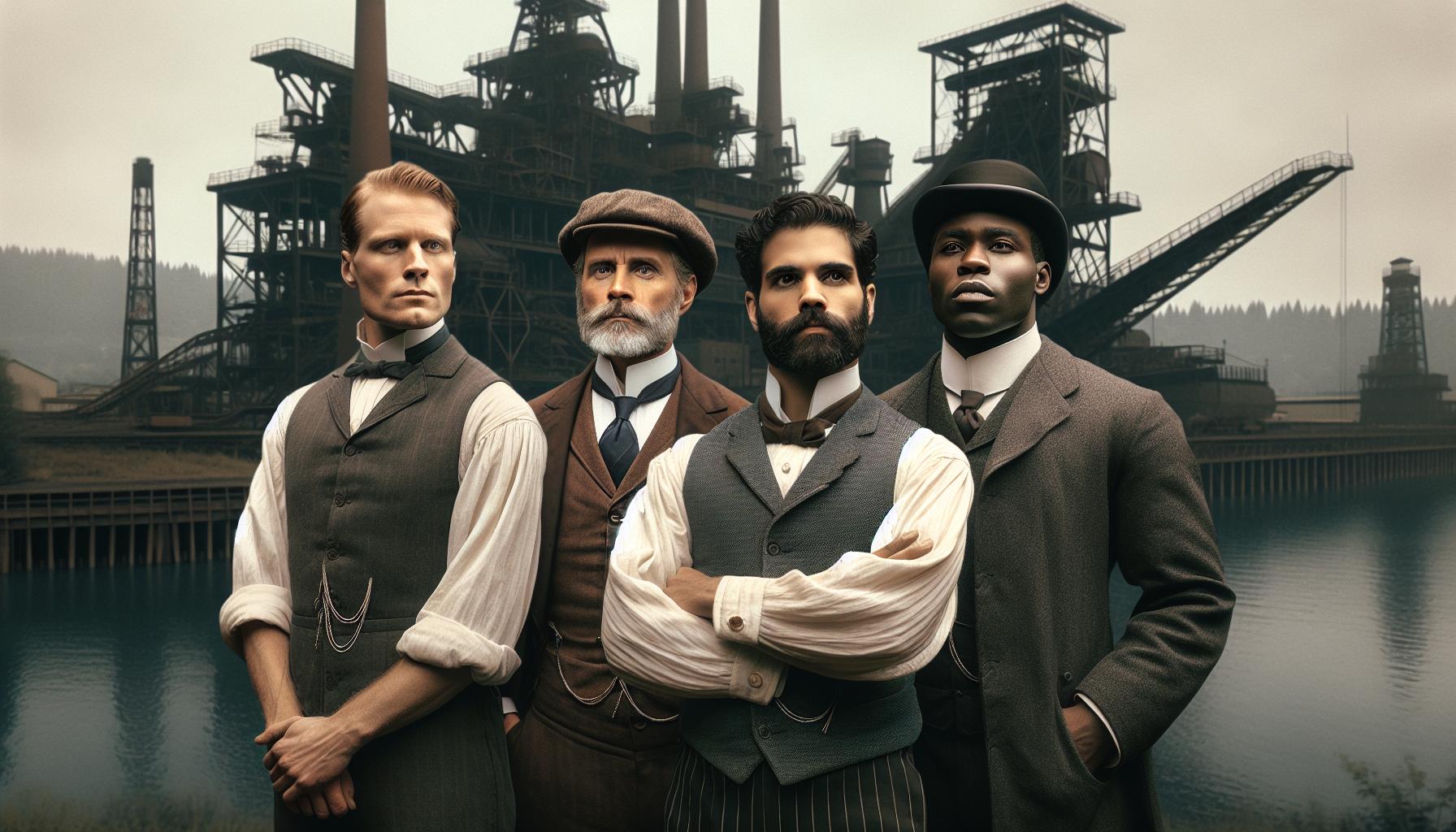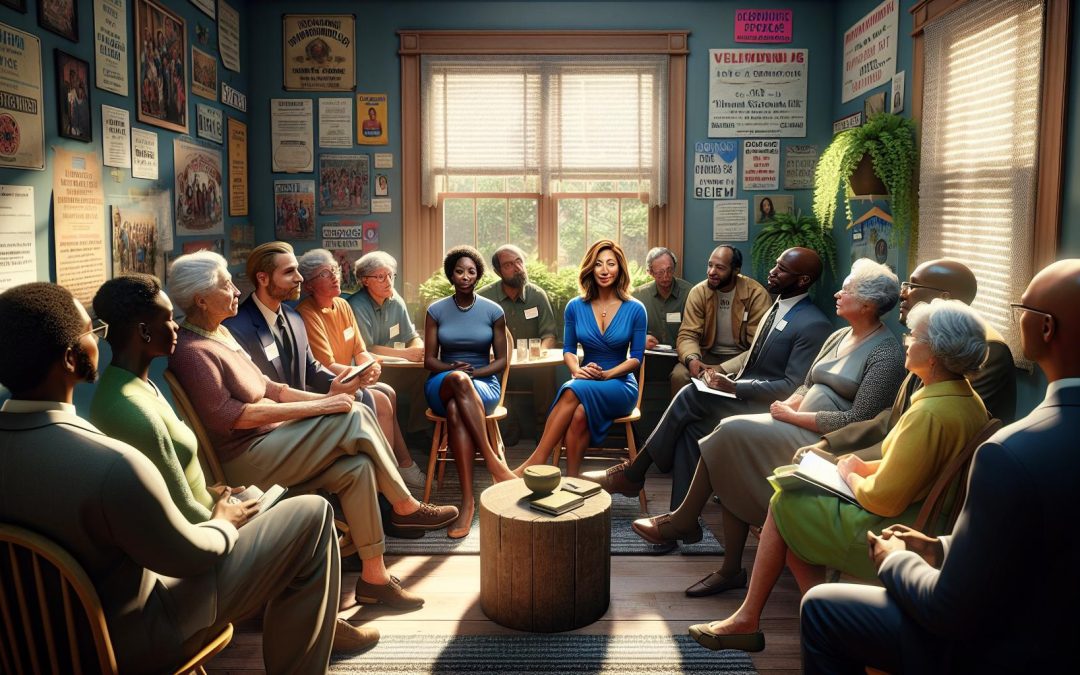Let me take you on a journey back in time, to the early days of Kirkland. We’ll get a glimpse into the lives of those visionary souls, the founding fathers, who shaped this city’s legacy. They were the architects of the community we now cherish, and their stories are threads woven into the rich tapestry of our shared history.
Their determination, courage, and vision have left an indelible mark on Kirkland. This article is a tribute to their enduring spirit, and an exploration of how their decisions and actions continue to resonate in our city today. So, sit back and let’s delve into the fascinating past that has made Kirkland what it is today.
Understanding Kirkland’s Founding Fathers: Shaping a Legacy
Time to delve deeper into the world of Kirkland’s founding fathers, appreciating the lineage they set forth for us.
Background of Kirkland’s Founding Fathers
To comprehend their incredible work, let’s glance over their backgrounds. Settling in Kirkland in the late 19th century, these men were a distinguished yet diverse group. Peter Kirk, an Englishman, harnessed his experience in steel manufacturing, inspiring Kirkland’s initial industrial growth. Leigh S. J. Hunt, an enthusiastic entrepreneur and newspaperman, influenced civic discourse, while milling titan, William L. Woodin, brought an economic boom to the town. These professionals held a common thread – a robust resolve and a grand vision for what Kirkland could eventually become.
Their Enduring Influence
The Kirkland we see today is, largely, a testament to our founding fathers. Kirkland’s vibrant arts scene? You’ll find Peter Kirk’s influence there, with his passion for culture infusing the town. Our still-thriving milling industry? Direct credit goes to Woodin whose early initiatives propelled this sector. Hunt’s contribution isn’t just in words, but also echoed in Kirkland’s conscientious community, engaging in discussions concerning the city’s future. See, it’s their guiding principles, ideas, and aspirations that continue to shape Kirkland’s legacy, ensuring that their impact isn’t dimmed by time, but rather, enriched by it.
Unpacking the Vision of Kirkland’s Founding Fathers
Scrutinizing the visions of Kirkland’s founding fathers reveals how they worked together to shape the legacy of this precious city, creating the very fabric of the community we know today.
Establishing a New Community
When Kirk, Hunt, and Woodin converged in the late 19th century, their primary goal was creating a flourishing community. They envisioned a settlement where people from different walks of life could thrive, and their shared commitment helped foster unmatched integration.
They established the town near Lake Washington, attracted by its natural beauty and resources, thinking it could, one day, support an industrial powerhouse. This spot would later serve as the foundation for many successful mills, affirming their selection.
The unique blend of expertise these men brought with them – steel manufacturing, entrepreneurship, and milling – proved instrumental in developing Kirkland. They created a thriving, self-sufficient community with a growing economic base, setting a firm foundation for the marvel that’s Kirkland today.
Urban Planning and Development Strategies
With their vision in mind, these pioneers put their heads together, developing smart strategies to stimulate urban growth. They harbored the belief that a robust industrial base anchored on steel manufacturing and milling would fuel the development of the young town.
Kirk, primarily, was the man behind the drive to base Kirkland’s future on the steel industry. His vision was to create the ‘Pittsburgh of the West,’ a dream that would later be constrained by circumstances beyond his control.
Together, they laid out streets, embarked on infrastructure projects, and endorsed entrepreneurial ventures. Decades later, these efforts remain evident in the city’s layout, street names, and thriving urban landscape.
Their approach to urban planning was innovative, aspirational, and practical. It consciously prioritized sustainable growth, fostering an environment where economic prosperity could coexist with arts and community engagement. The prosperity in modern-day Kirkland is a testament to their successful strategies and insightful planning.
Challenges Faced by Kirkland’s Founding Fathers
Despite their vision and fortitude, Kirkland’s founding fathers grappled with significant social and economic challenges. Let’s explore these hurdles and their innovative responses.
Social Challenges and Opposition
Crafting Kirkland’s identity wasn’t a walk in the park. Founders faced social adversity and strong opposition, often from residents who were resistant to the rapid transformation of their town. Individuals who had settled in the area before its official establishment sometimes protested against its industrialization, fearing the loss of their agrarian way of life. The transition from a quiet farming community to an industrial town created friction and sparked myriad disputes.
Besides, the building of essential public infrastructure required displacing some residents, intensifying resentment towards the new town planners. Yet, the pioneers remained undeterred. They employed diplomacy and strategic compromise to assuage the discontent, making key alliances with influential residents and ensuring the local populace’s needs were represented and met. Additionally, they worked to dispel the fears of industrialization, highlighting its benefits, like job creation and the town’s overall prosperity. Their efforts helped smooth the path towards the modern, progressive Kirkland we see today.
Economic Obstacles and Solutions
Economically, starting a new town presented its own unique set of challenges. Firstly, Kirk and his comrades had to attract investors to fund their ambitious projects. In an era marked by financial instability, securing funds was no small task. Yet, their determination was relentless; they sought out and successfully obtained backing from a broad base of supporters, ranging from local businessmen to out-of-state industrialists.
Moreover, the founders faced the difficulty of creating a stable economy in a largely undeveloped territory. They tackled this issue strategically, knowing the importance of a diverse economic structure. Thus, they encouraged varied enterprises, from milling to retail businesses, allowing Kirkland’s economy to thrive despite fluctuations in individual sectors.
These founders also understood the need for critical infrastructure to support their burgeoning industries. They accordingly prioritized the development of transportation networks, electric power sources, and other public services. These foundational projects not only boosted Kirkland’s economy but also attracted more residents – making the town even more attractive to further investment. The legacy of their tenacity and strategic economic planning can still be witnessed in Kirkland’s robust economy today.
Contributions of Kirkland’s Founding Fathers
The legacy of Kirkland owes much to the transformative contributions of its founding fathers. Let’s dig deeper into their influence on infrastructure development and socio-economic changes.
Notable Infrastructure
The pioneers of Kirkland left a striking mark on its infrastructure. Peter Kirk, Leigh S.J. Hunt, and William L. Woodin played pivotal roles on this front. They foresaw the growth of Kirkland, ensuring the town was well-equipped for its inevitable industrial expansion.
For instance, Kirk, a seasoned steel manufacturer, envisioned Kirkland as the ‘Pittsburgh of the West.’ He initiated numerous infrastructure projects, including laying out streets and developing strategic urban plans. These actions have significantly impacted Kirkland’s current city layout and landscape.
Hunt and Woodin, on the other hand, focused more on the promotion of entrepreneurial ventures. Their efforts not only attracted investors but also contributed to the development of significant buildings and landmarks in Kirkland, many of which still stand today.
Socio-Economic Changes
The founding fathers also stirred significant socio-economic changes in Kirkland. They faced opposition from residents resistant to the swift transformation from an agrarian community to an industrial powerhouse. Yet, they found ways around this by leveraging diplomacy and strategic compromise. They highlighted the benefits of industrialization and managed to convince residents of its positive impact on their lives.
Similarly, on the economic front, they faced the challenge of attracting investors during a financially unstable era. Despite these challenges, they encouraged diverse enterprises and prioritized critical infrastructure development. This led to the creation of a stable economy in otherwise undeveloped territory. As a result, Kirkland’s economy today is a thriving testament to their successful strategies.
Evaluating the Impact of Kirkland’s Founding Fathers
Evaluating the impact of Kirkland’s founding fathers helps us grasp how their vision still shapes the city. Let’s understand how modern Kirkland mirrors their ideas and the lasting effects of their contributions.
Modern Kirkland: Reflection of Their Vision
Embodying their vision, Modern Kirkland mirrors the ideals of its founding fathers. The city’s industrial sphere thrives, continuing a legacy started by pioneers. Kirk’s vision of making Kirkland the ‘Pittsburgh of the West’ is evident as the city buzzes with industrial activities.
Next to the robust industry, an diverse community flourishes. The city’s founding fathers dreamed of a place where people from all walks of life coexisted, and that dream’s alive today. Wandering around Kirkland, one can’t overlook the city’s multicultural tapestry, nurturing inclusivity rooted in the founders’ principles.
Moreover, Kirkland’s layout details the founders’ thoughtful urban plans. Their efforts in laying out planned streets and initiating key infrastructure projects are evident in the city’s organized urban landscape.
Long-Term Effects of Their Contributions
The founding fathers of Kirkland didn’t just build a city, their legacy permeates every aspect of the town. Economically, their strategy of diverse enterprises led to a robust local economy that remains vibrant today. Innovations in steel manufacturing and milling, establishments they spearheaded, continue to be central to Kirkland’s economic prosperity.
They also astoundingly altered Kirkland’s socio-economic fabric. The swift transformation from an agrarian town to an industrial powerhouse changed Kirkland’s identity. The founding fathers diplomatically mitigated resistance from residents, highlighting industrialization’s prosperity. This strategic compromise ensured smooth transition and remains exemplified by Kirkland’s prosperous industrial state.
Infrastructure-wise, their indelible marks persist. Landmarks erected under their guidance, streets planned by them, stand as testimonials to their transformative efforts. Their contribution guarantees that Kirkland’s legacy remains enriched, enhancing its relevance even today.
Personal Reflections on Kirkland’s Founding Fathers: Shaping a Legacy
Diving into the rich tapestry of Kirkland’s history, I’m awestruck by the foresight and determination of the founding fathers. They grappled with resistance, social adversity, and economic instability. Yet, their resilient spirit and innovation shine through the industrial and economic strength of modern-day Kirkland.
Reflecting on Peter Kirk, Leigh S. J. Hunt, and William L. Woodin, I see more than just pioneers. They were visionaries, hardy industrialists breaking into virgin territory, fearlessly pursuing their dream of a thriving industrial town. Kirk’s transformative infrastructure projects laid the groundwork for present-day Kirkland. I imagine him, blueprint in hand, meticulously planning every road and building, making sure that Kirkland was not only functional for industry, but also a great place to live.
As I walk through the town, I see the influence of Hunt and Woodin in every corner. Their enterprising spirit is evident in significant buildings and landmarks that still dot the cityscape. I can’t help but get wrapped up in imagining their zealous endeavors as they tirelessly promoted their entrepreneurial ventures, attracting vital investments that transformed the face of Kirkland.
My heart brims with respect and admiration for these formidable founders who navigated tremendous change, rallied against public disapproval, and mitigated resistance. Their diplomatic finesse in transitioning a small farming community into an industrial powerhouse is admirable. It’s a testament to their negotiation skills that Kirkland not only survived but thrived amid the sea of change.
Their accomplishments did not stop in the realm of the physical, but extended into socio-economic transformations. I’m incredibly thankful for the multicultural, inclusive society they cultivated. Myriads of backgrounds, co-existing and flourishing in harmony – this would not have been possible without the founding fathers’ shared vision and commitment.
Above all, the endurance and ongoing influence of their strategies impress me. The flag of diverse enterprises they hoisted continues to sail high, sustaining a robust local economy. Their legacy shines through Kirkland, intricate yet unyielding, against the test of time.
In moments of quiet, as I explore Kirkland’s bustling streets or gaze upon the industrial hub that it’s become, I’m reminded of the founding fathers’ fearless pursuit of a dream. More than just a symbol of determination and resilience, they symbolize the triumph of vision and the power of shared dreams. Their footprints are not only etched in the city’s layout, landmarks, and economies, they’re also woven into the very socio-economic fabric of Kirkland. Their legacy stands as an enduring testament to the city that they envisioned – a legacy that continues to shape Kirkland’s destiny.
Conclusion
It’s been a pleasure walking you through the rich history of Kirkland and the influential figures who paved its path. Peter Kirk, Leigh S. J. Hunt, and William L. Woodin weren’t just founding fathers, they were the architects of a legacy that resonates to this day. Their vision to transform a modest farming community into an industrial titan was no small feat. Yet, they faced the challenges head-on, proving that with determination and a shared dream, anything is possible.
Today, we see their influence in every corner of Kirkland. From the bustling economy to the innovative urban planning, their fingerprints are everywhere. And it’s not just about the physical aspects of the city. Their spirit of resilience, their commitment to diversity and inclusion, these are values that Kirkland holds dear.
In essence, our journey through Kirkland’s history is a testament to the enduring power of vision and shared dreams. It’s a story that continues to inspire and shape the city’s destiny. So here’s to Kirkland’s founding fathers, their remarkable legacy, and the city they helped shape.





0 Comments